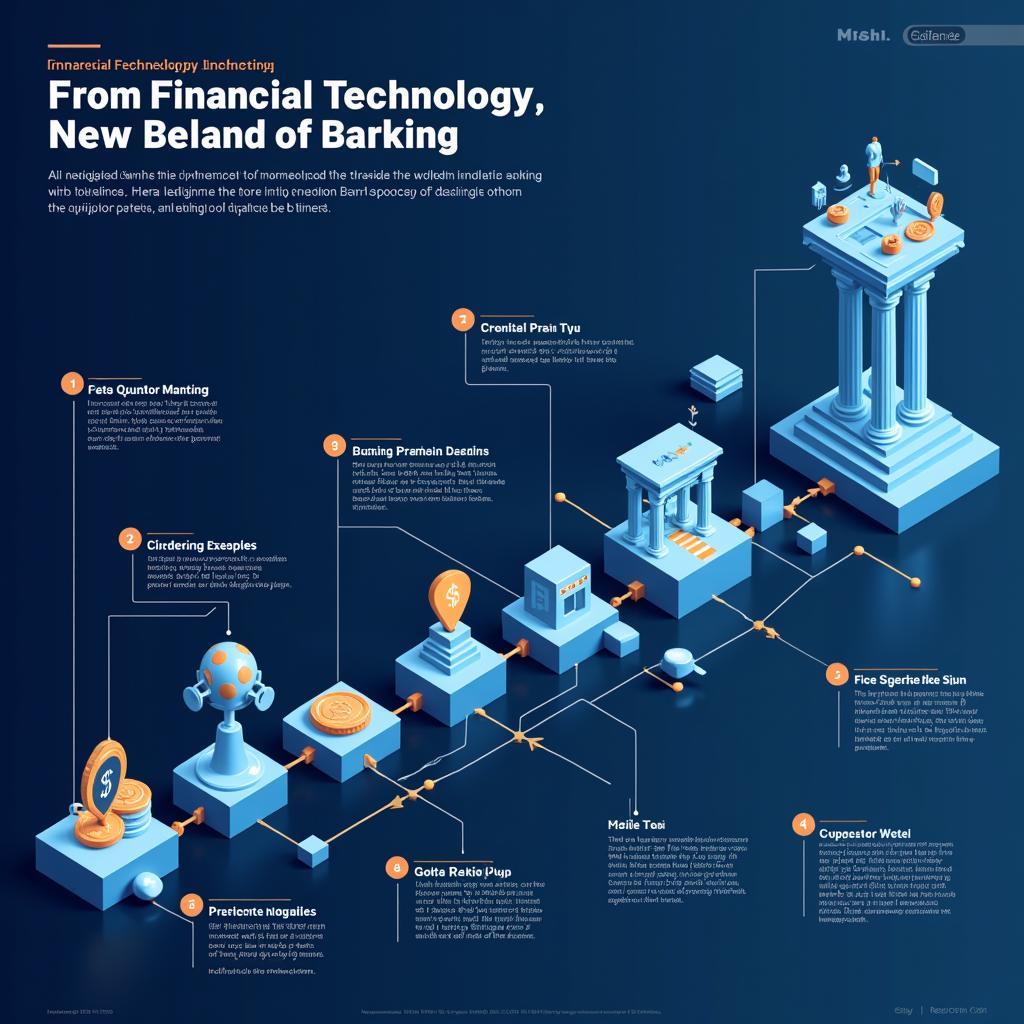Financial technology or “fintech” has become an increasingly common topic in IELTS Writing Task 2 essays, particularly in questions about technological advancement, economic development, and societal changes. After analyzing recent exam questions, this theme appears in approximately 15-20% of technology-related tasks, making it crucial for IELTS candidates to be well-prepared.

Analyzing the Task Question
Some people believe that the rapid development of financial technology will completely replace traditional banking systems in the future. To what extent do you agree or disagree with this statement?
This question requires candidates to evaluate the potential impact of financial technology on conventional banking methods. It’s an agree/disagree essay that demands a clear position and well-supported arguments.
As impact of blockchain on global finance continues to grow, understanding these technological shifts becomes increasingly important for both consumers and financial institutions.
Band 8.5 Sample Essay
The unprecedented growth of financial technology has sparked intense debate about the future of traditional banking. While I partially agree that fintech will significantly transform banking services, I believe it will complement rather than completely replace conventional banking systems.
Fintech innovations are undeniably revolutionizing financial services. Mobile payment platforms and digital wallets have already transformed how people conduct daily transactions, making traditional cash transactions less prevalent. Furthermore, blockchain technology and cryptocurrencies are challenging conventional notions of currency and financial intermediation. These developments suggest a dramatic shift away from traditional banking methods.
However, several factors indicate that traditional banking will retain its relevance. Firstly, many customers, particularly older generations and those in rural areas, still prefer face-to-face banking services and may resist complete digitalization. Additionally, importance of financial literacy in small businesses demonstrates that traditional banking relationships remain crucial for complex financial decisions and large-scale transactions.
Moreover, regulatory requirements and security concerns necessitate maintaining some traditional banking infrastructure. Banks’ established risk management systems and regulatory compliance frameworks cannot be easily replicated by purely digital alternatives. The impact of blockchain on financial transparency shows both the potential and limitations of new technologies.
In conclusion, while fintech will continue to reshape the financial landscape, it is more likely to evolve alongside traditional banking rather than replace it entirely. The future probably lies in a hybrid system that combines the efficiency of digital innovation with the security and reliability of conventional banking.
Band 7.5 Sample Essay
The rapid advancement of financial technology has led many to question the future of traditional banking. In my opinion, while fintech will significantly impact banking services, it is unlikely to completely replace conventional banking systems.
Financial technology offers numerous advantages that are transforming banking services. Digital payment systems and mobile banking apps have made financial transactions more convenient and accessible. Additionally, online lending platforms and robo-advisors are providing alternatives to traditional banking services at lower costs.
However, traditional banks still serve essential functions that cannot be entirely digitalized. Many complex financial services, such as mortgages and business loans, require human judgment and personal relationships. Furthermore, traditional banks provide a sense of security and stability that many customers value, especially for significant transactions.
The importance of personal financial discipline suggests that some aspects of traditional banking, such as financial advice and personalized service, will remain relevant. While technology can automate many processes, human interaction often remains crucial for important financial decisions.
In conclusion, although fintech will continue to revolutionize banking services, it is more likely to transform rather than eliminate traditional banking. The future will probably see an integration of both systems, combining technological innovation with conventional banking strengths.
Key Vocabulary
- Fintech (n) /ˈfɪnˌtɛk/ – Financial technology
- Digitalization (n) /ˌdɪdʒɪtəlaɪˈzeɪʃən/ – The process of converting information into digital format
- Cryptocurrency (n) /ˈkrɪptəʊˌkʌrənsi/ – Digital or virtual currency
- Blockchain (n) /ˈblɒkˌtʃeɪn/ – A digital ledger of transactions
- Robo-advisor (n) /ˈrəʊbəʊ ədˈvaɪzə/ – Digital platforms providing automated financial planning services
- Infrastructure (n) /ˈɪnfrəˌstrʌktʃə/ – Basic physical and organizational structures needed for operation
- Intermediation (n) /ˌɪntəmiːdɪˈeɪʃən/ – The process of bringing together parties in a financial transaction
Conclusion
The topic of financial technology’s impact on traditional banking systems remains highly relevant for IELTS candidates. When practicing this topic, consider related themes such as:
- The role of artificial intelligence in financial services
- Digital currency adoption in developing countries
- Privacy and security concerns in online banking
- Financial inclusion through technology
Feel free to practice writing your own essay on this topic and share it in the comments section for feedback and discussion.